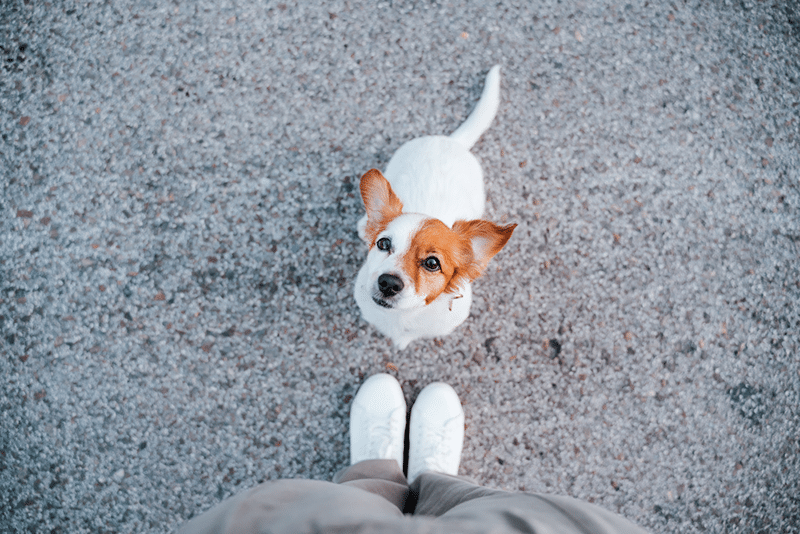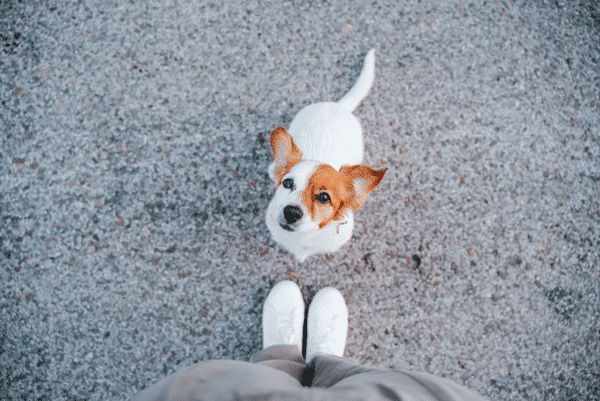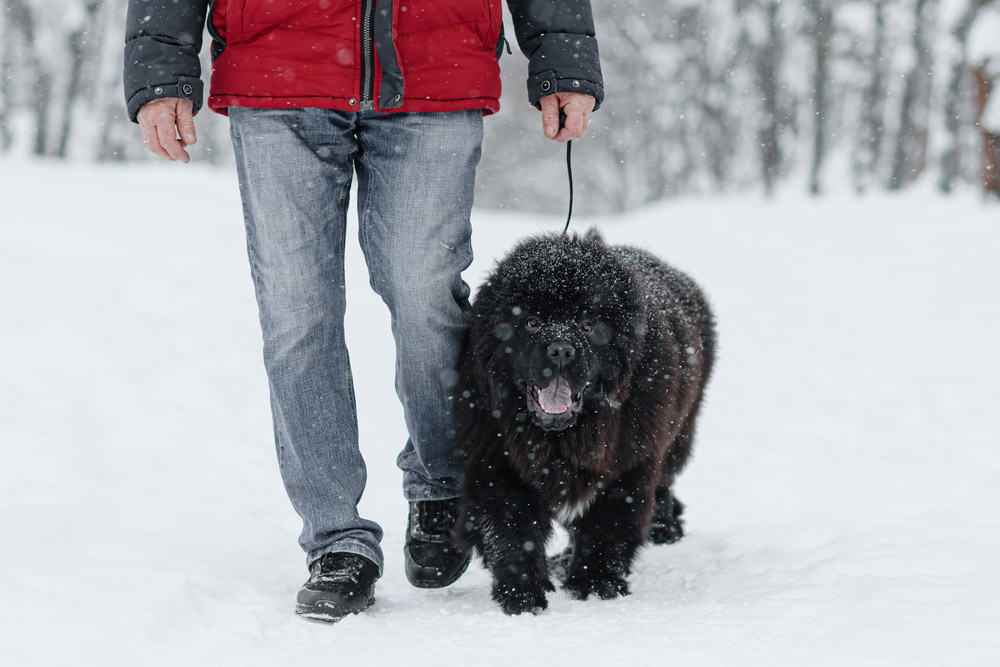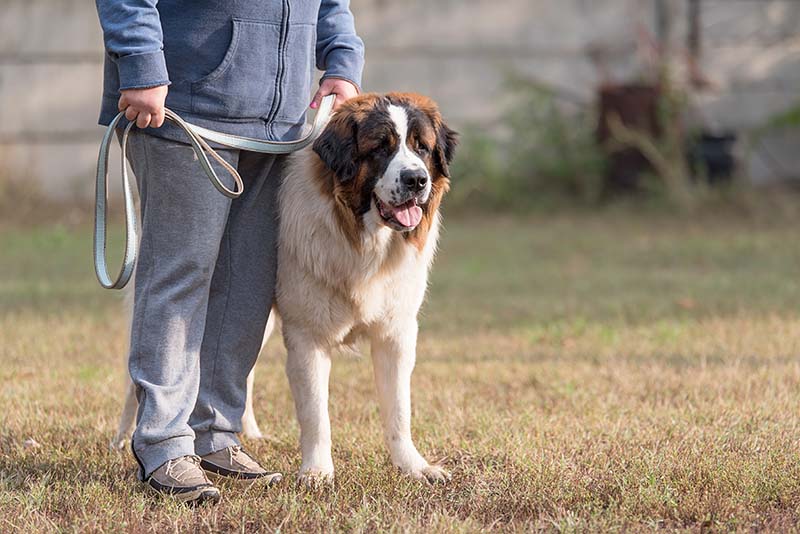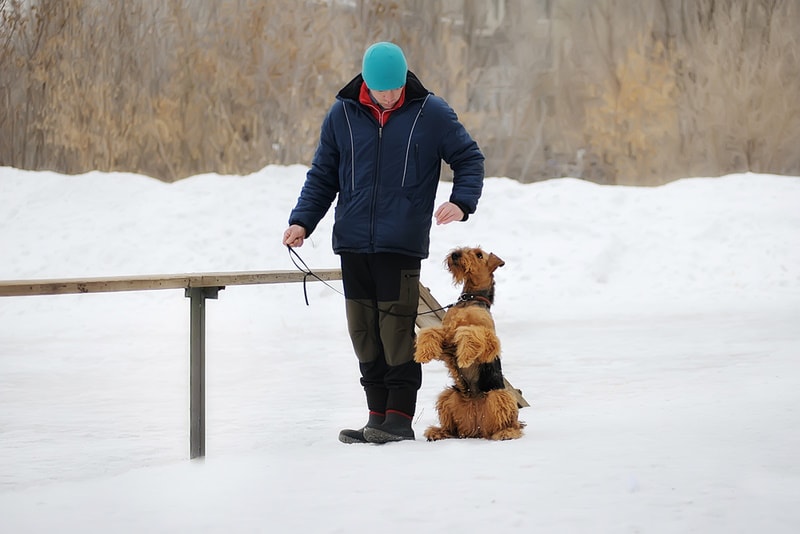Dogs have been trusty lap warmers for centuries, but their odd habit of sleeping on our feet still leaves many owners scratching their heads. Why are they pinning us down at the ankles? Are they trying to stay warm, or do they want to anchor us in place so we can’t leave them?
As it turns out, dogs sit on your feet for many reasons. Let’s explore the causes behind the peculiar behavior and whether you should do anything about it.
Why Do Dogs Sit on Your Feet?
Dogs sit on your feet to be affectionate. You’re their closest companion and greatest source of comfort, and contact offers emotional relief, security, and a stronger bond. While this behavior may be a simple way of showing their love, it could also have a deeper cause worth exploring.
They’re Feeling Anxious
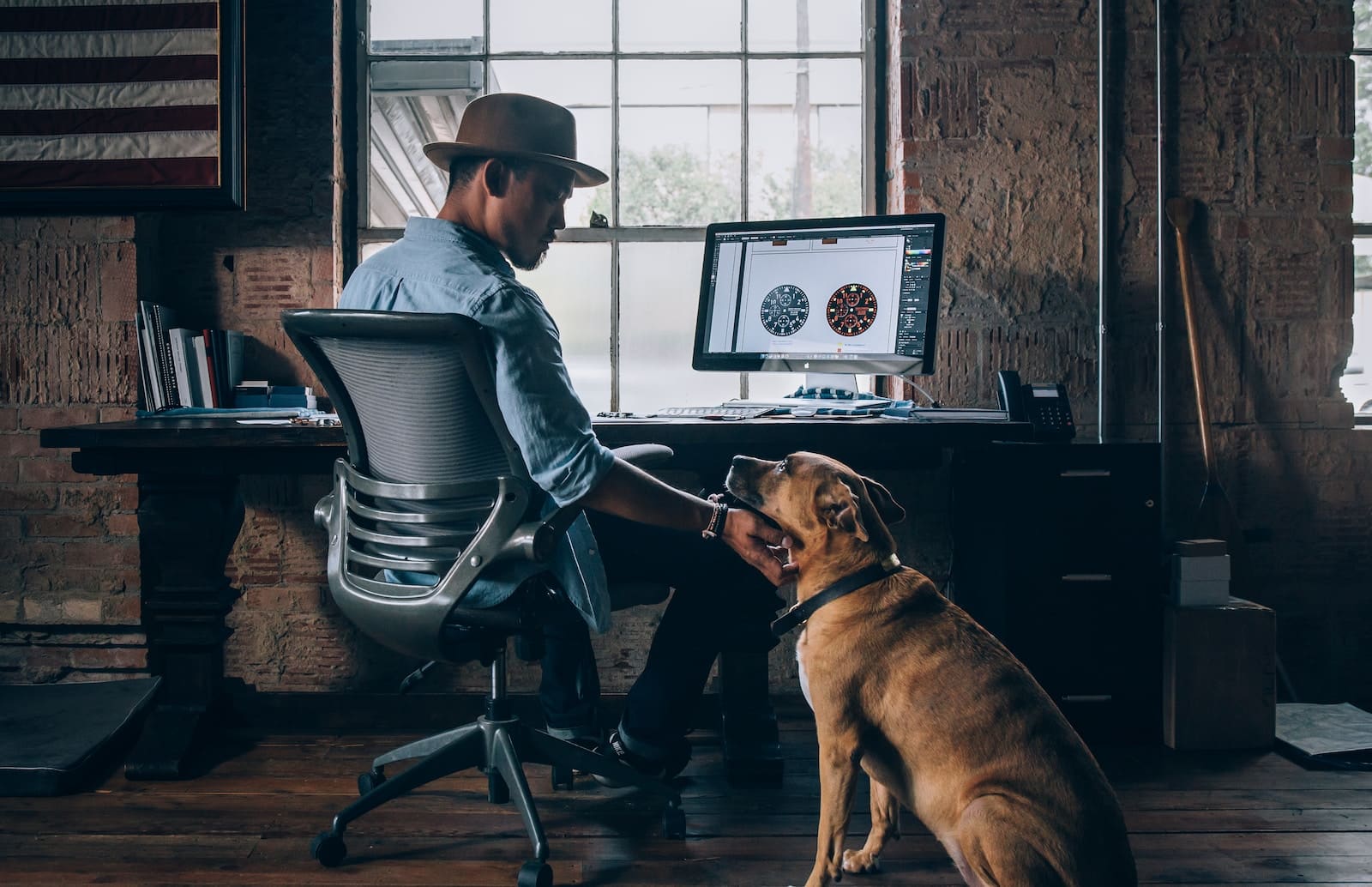
Many theorize that dogs form attachments with owners as infants connect with their mothers. Owners become secure bases, giving dogs a point of reference to explore the world around them. As a “safe haven,” you’re a source of emotional stability in a stressful situation. You are a confident leader your anxious dog can retreat to. This dynamic may manifest in their desire to sit on your feet.
The behavior may occur more often when unfamiliar people are nearby, loud noises are startling your dog, or they’re in a strange place. You might notice your dog sitting on your feet when you take them to the vet. Other signs of an anxious dog can include:
- Lip licking
- Ears pulled back
- Head lowered
- Drooling or panting
If sitting on your feet is a frequent occurrence, you may want to talk with your vet about strategies for decreasing your dog’s anxiety.
They Want Attention
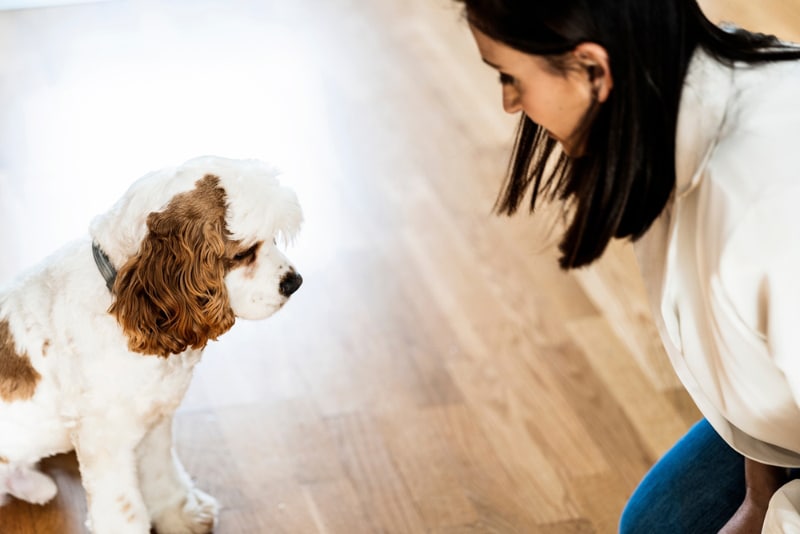
Dogs try all kinds of moves to grab our attention and direct us to give them what they want when hungry or understimulated. Some dogs bark, others put their paws on you, and occasionally, they’ll sit on your feet.
Attention-seeking behaviors are typically learned and reinforced. Your dog does this action, finds satisfaction in doing it, and performs it again because they know it will get results. If you get up to play with them or give them food every time they sit on your feet, they’ll continue doing it. While this may not be the worst way of getting you to take notice, you can try breaking the habit by ignoring your dog when they sit down on you.
They’re Staying Warm

From the tiny lapdogs of the aristocracy to the Eskimo companions that would sleep with their people on cold nights, dogs have always been around to keep their owners warm when needed. And it works the other way, too. If it’s chilly at night or the floor below them is too cold for their tastes, your dog might get cozy on your feet to heat up.
They’re Guarding You

Does your dog’s habit of sitting on your feet also include aggression toward anyone trying to approach you? When dogs become overly attached to one person, they may resource guard them. They’ll sit by your side (or on your feet), and if anyone comes near or tries to get your attention, they’ll lash out by growling, barking, and snapping, sending a clear message to back off.
A dog’s resource guarding can be highly problematic and dangerous for family and strangers. Many times, they have anxiety, and because they don’t want to lose the immense value you provide, they cut off anyone else’s access to you.
Managing this discomfort could require the help of professional trainers or behaviorists. You may need to reframe the meaning of another person’s presence by creating a positive association with treats and praise for good behavior.
Your dog could also need help reducing their general anxiety about you, perhaps through more training and socialization to teach them better ways to respond in potentially stressful situations.
It’s More Comfortable
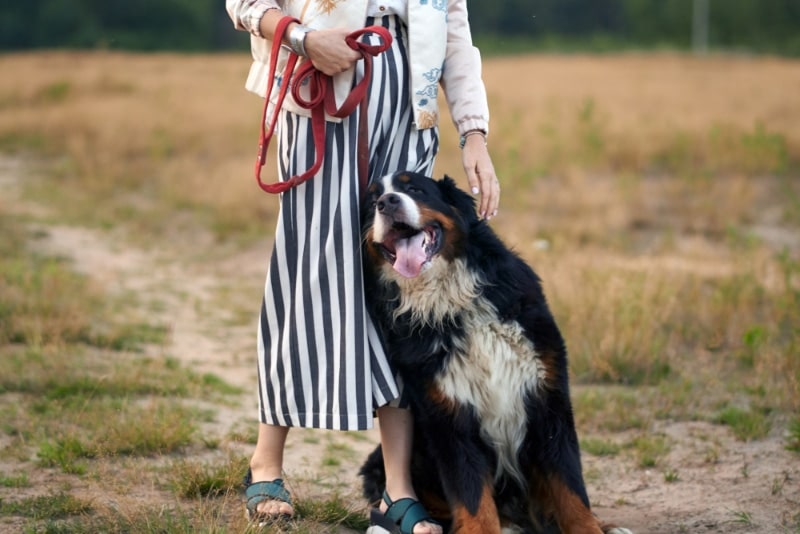
Maybe you have an older dog who only recently began sitting on your feet. In some instances, an underlying bodily ailment, like arthritis or a sore back, will have your dog looking for new positions to find relief and ending up perched atop your feet.
Talk with your vet if you notice a consistent change in how your dog sits on your feet or if they show any accompanying signs of discomfort.

Final Thoughts
The reasons our dogs sit on our feet aren’t always obvious. Sometimes, it’s a simple act of affection, or it can indicate a deep-seated anxiety or possessiveness that demands attention. Pay attention to the context clues and behaviors your dog shows when they sit on your feet, and you can decide if it’s a problem to fix or a fun quirk to enjoy.
Featured Image Credit: eva_blanco, Shutterstock

